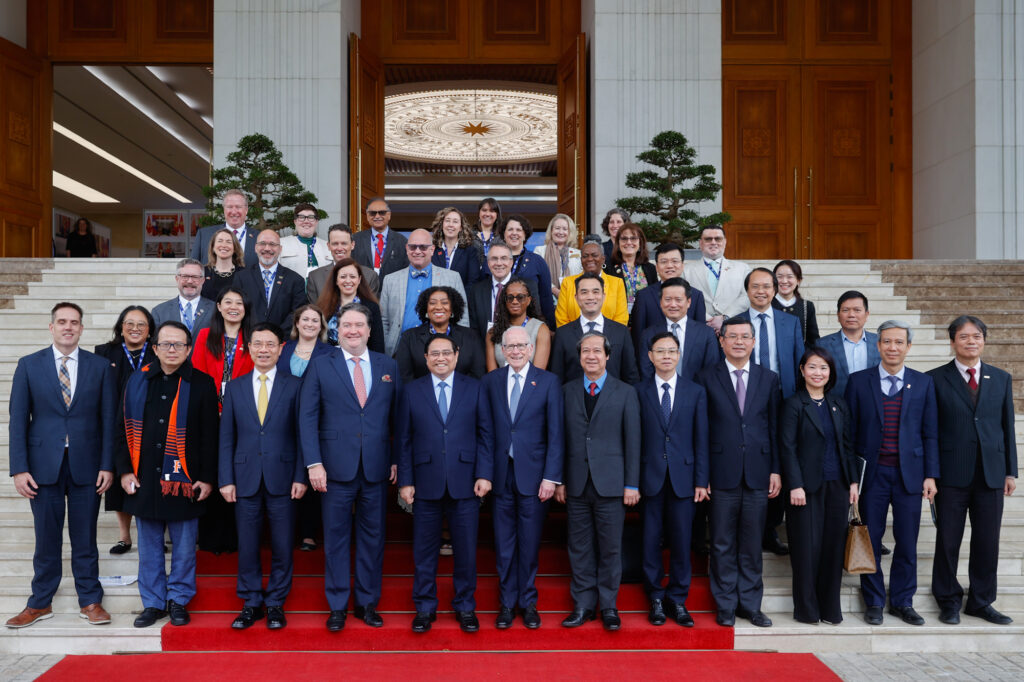This Spring, IIE Led a Delegation to Connect U.S. and Vietnamese Higher Education Administrators.
IIE’s Center for International Partnerships was honored to lead a historic delegation of 21 U.S. universities to Vietnam in early April, thanks to generous funding from the U.S. Mission Vietnam. The delegation is part of the Center’s flagship program, the International Academic Partnership Program (IAPP), which guides participating institutions through a series of virtual and in-person programming intended to foster academic partnerships in the focus country.
This year marks 30 years since the normalization of diplomatic relations between the United States and Vietnam, and momentum is building in educational exchange between the two nations. Of the more than 1.1 million international students enrolled at colleges and universities across the United States, students from Vietnam rank among the top ten countries of origin; of ASEAN countries, Vietnam is the largest source of students from the ASEAN region. Collectively, these students added more than $1 billion to the U.S. economy in the form of tuition, housing, and other expenses last year. Likewise, American students in higher education are rebounding to pre-pandemic levels of study abroad participation in Vietnam. And at the start of the 2024/25 academic year, U.S. colleges and universities reported a 3% rise in international student enrollment across U.S. institutions, confirming their intent to ramp up undergraduate outreach in the country.
From March 31 to April 4, the delegation of more than 40 U.S.-based senior leaders met with government and education representatives in both Hanoi and Ho Chi Minh City, including Vietnamese Prime Minister Pham Minh Chinh, who held a two-hour meeting with the IAPP Vietnam delegation. In the meeting, they emphasized educational cooperation as a pillar of the U.S.-Vietnam Comprehensive Strategic Partnership. Key areas of collaboration emerged during the discussion—including scholarships, English language training, and joint research funding—all made more impactful by strong government backing.
In addition, the delegation visited 11 Vietnamese institutions, each of which showcased their institution’s strengths and collaboration opportunities. The IAPP also included two partnership roundtables, which introduced the U.S. leaders to more than 30 Vietnamese institutions based in both cities.
Given Vietnam’s strength in STEM fields, especially in semiconductor production and training, IAPP Vietnam placed a heavy emphasis on STEM partnerships both prior and during the in-country delegation. During a conversation with representatives from the private sector, panelists discussed the importance of “soft skills” in engineering fields—and how international learning experiences help to develop soft skills. Participants agreed that upskilling initiatives combining technical training with communication, leadership, and adaptability are central to preparing students from both countries for the future of work.
While the delegation’s in-country study tour has concluded, the IAPP is far from over. Next steps include seed grants to support collaborative projects and continued engagement through virtual platforms.
To date, the Center has conducted nearly 20 IAPPs in 14 focus countries, resulting in hundreds of active, mutually beneficial partnerships. To learn more, visit www.iie.org/cip.
